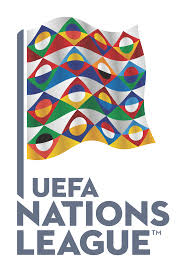Paid football tips WIN NOW!
Nations League predictions How the FPF changed football in ten years
Blog of Nations League tips

UEFA introduced a regulation ten years ago that changed the landscape of European football. Its name is Financial Fairplay and in the next few lines we will show you four key ways in which this happened.
1. CLUBS ARE ALREADY PROFITABLE (AND FOREIGN OWNERS USED)
Owning a football club, Alan Sugar complained in his time as president of Tottenham, is like drinking plum juice while eating figs. Whenever money comes in, he complained, they are currently heading back to the feathers with transfer amounts and salaries, leaving their owners with pockets empty.
In the first 17 years of Premier League existence, the value of television rights has jumped from 50 million to as much as 800 million pounds, and yet it is remarkable that the 20 clubs had lower operating profits in 2008/09 compared to 2008/09. 1996/97. The more money they received, the more they had to spend to hold their positions.
When a UEFA report showed that half of all European clubs were at a loss and 20% were directly at financial risk, the plant decided to take a position. In the summer of 2009, she introduced the Financial Fairplay -;a policy through a standard that penalizes clubs if they fail to make a profit.
The effect was profound: from the collective profit of the 20 PL clubs of ? 79 million in 2008/09 (the last financial year before the AFF) in 2017/18, it jumped to a total of 867 million, according to Deloitte.
The value of television rights in the English elite division has been steadily increasing, but by linking food to revenue, the FPF has reduced the ratio of club according rankings nations league revenues to spending on salaries -;from 71% in 2012/13 to 59% today. Owners know that rivals can`t spend beyond their options to get ahead of them on the pitch, which in turn means they can enjoy more of the extra amount of TV rights growth.
Without regulation, I`m sure we would still be watching fabulous food, said Rob Wilson, a football finance expert at Sheffield Halam University.
As many as 19 of the 20 CL u200bu200bclubs recorded operating profits in 2017/18 compared to just 11 in 2011/12. Flying into the skies of profits backwards, fears of a jump in debt levels collapsed inversely: since 2009, net debt levels have fallen from 167% to 61%, according to Deloitte, as a proportion of Premier League revenue.
All this explains why elite and Championship clubs have never been more attractive to owners who want to use them to raise money, a long-standing norm for overseas sports. In fact, today, three Big Six clubs have owners from the United States who run sports teams in their home country and transfer their methodology from there to England. Liverpool -;owned by Fenway Sports Group, has declared a profit of ? 125 million before tax for the 2017/18 financial year. Many foreign owners are known to support FFP because it is easier to earn than owning a sports team. Even the pioneer among the uncles and moneymakers, Roman Abramovich, already agrees.
Nations League predictions - more details and information: Nations League predictions
Blog of Nations League tips